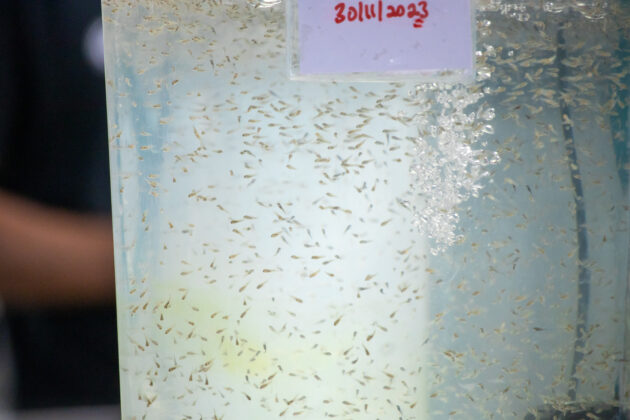
News & Views
Research
Smallholder aquaculture a “gamechanger” for Zambian farmers: WorldFish study
January 31, 2024 By Hatchery International staff
 Field photos that were taken in the field with fish value chain actors in Homa bay and Migori counties in Kenya.
(Photo: Rahma, WorldFish)
Field photos that were taken in the field with fish value chain actors in Homa bay and Migori counties in Kenya.
(Photo: Rahma, WorldFish) A new study reveals that Zambian farmers could experience some benefits from adopting smallholder aquaculture.
The research, published in Agriculture & Food Security, shows evidence of how fish farming diversifies livelihoods and improves food and nutrition security in rural areas.
“For the first time our study in northern Zambia shows that smallholder aquaculture can be a game-changer for local farmers,” said Alexander Kaminski, a researcher at WorldFish.
The research compared households with and without fishponds and showed that those engaging in fish farming experienced a noticeable enhancement in their livelihoods. These benefits included income generation, a richer and more nutritious diet and a more resilient agricultural system.
“By integrating fish farming into their agricultural practices, households not only diversified their income sources but also significantly improved their dietary variety and overall food security,” said Kaminski.
Shakuntala Thilsted, CGIAR director of Nutrition, Health and Food Security and WorldFish Global Lead for Nutrition and Public Health agreed.
“This study provides clear evidence that fish farming is an invaluable component in the fight against food and nutrition insecurity in Africa. It provides evidence that nutrition-sensitive homestead aquaculture can enrich diets and create sustainable farming systems that benefit entire communities,” said Thilsted.
The study shows that food and nutrition security from aquaculture arrives via three pathways: farmers selling fish for money to afford a better diet, eating fish from ponds to have access to high-quality sources of protein and micronutrients, and using the pond within an integrated farming system that allows for diversification into other crops.
These results provide a path forward for policymakers and development agencies looking to improve rural economies and nutrition in developing regions. It emphasizes the value of looking beyond traditional agricultural methods and embracing more integrated, diversified farming approaches.
Print this page
Advertisement
- Russia shifts aquaculture development targets
- New director selected for BioMar and Viet Uc joint venture








